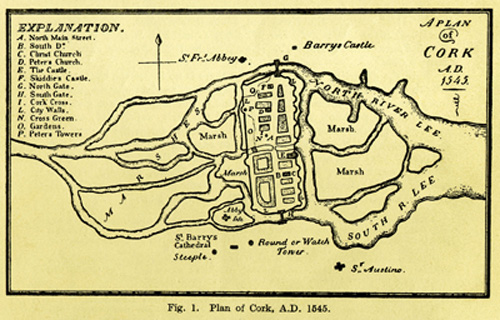More on the Troika and Bonds
 Tuesday, November 8, 2011 at 06:45PM
Tuesday, November 8, 2011 at 06:45PM My last post was found unconvincing, even - shockingly ! - by some lawyers ![]()
Before I start, I should again attempt to make it clear what I am, and am not, saying.
I am not arguing that there is a term in the Troika documents which explicitly (or even implicitly) provides that any particular debt of any bank must be paid in full. To the contrary, there are a number of references to the option of not doing so.
What I am contending is that, under the Troika agreements, the decision on whether to pay is not for the Irish Government alone, and that the consent of the Troika fairly clearly was not forthcoming for anything less than a full payment of Anglo's "billion-dollar bond" last week.This news story from last June would appear to bear that out. Note in particular the last paragraph
On the issue of plans affecting senior bondholders at Anglo Irish Bank, Mr Van Rompuy said he 'took note of it' but this could happen only with consultation and negotiation
See also this story, also from June 2011, featuring a rather significant comment
The European Central Bank has opposed any moves to force losses onto senior bank bondholders and Ireland won’t act unilaterally, Deputy Prime Minister Eamon Gilmore said today.
In that sense - and that one only, I think - the payment is required by the "bail-out". Without the "bail-out", the Irish Government would have had a freer hand, although the fear of causing difficulties for the continuation of ECB liquidity support for the banking system would have been a significant constraint on that freedom.
I propose to elaborate further by way of some "big picture" points, followed by some detailed citation of the publicly available documentation.
Big Picture
- If the "bail-out" deal does not give the Troika a veto over significant financial/economic decisions, just why were we all so upset at having to accept it ?
- Specifically, why did the late Brian Lenihan express his disappointment with the deal vis-a-vis "burning the bondholders" ?
- Although it is not a view universally shared, the deal explicitly names the banking crisis as the root problem of the economy. That being so, is it plausible that the Troika would not require a say in the detail of its resolution, and for this "say" to be written-in ?
- The Troika is composed of the IMF, the ECB and the EFSF. While it is of course conceivable that the Troika could split, there is no sign that it has done, and there is reason (see my earlier post link) to believe that there is less disagreement on this issue than assumed by many
- The ECB's view on the issue of "burning bondholders" hardly needs further discussion: to put it mildly, it is agin it. Is it conceivable that it would not write-in a veto (or something resembling it) ?
- It has been suggested that the issue of bonds was, at best, peripheral to the "bail-out" negotiations. Au contraire, it was, I believe, the "elephant in the room", though perhaps not the only one. How else to explain Brian Lenihan's comment ?
- Above all, the main obstacle to believing that the "bail-out" and the bond payment are unrelated is the lack of any credible alternative explanation for the failure to impose a "hair-cut" on the bondholders.
Deal Provisions
The version of the "bail-out agreement" from which I will be quoting is this one (PDF) from the Department of Finance website.
Please note these provisions
- The Irish authorities ... will stay in close contact and consult with...the ECB... on the adoption of these measures and in advance of revisions (page 4, paragraph 10)
- To this end, by end-January 2011, we will submit to the European Commission a revised proposal developed in collaboration with IMF, to resolve Anglo and INBS (page 11 paragraph 10)
- The quarterly disbursement of financial assistance from the European Financial Stabilisation Mechanism (EFSM) will be subject to quarterly reviews of conditionality for the duration of the programme.(page 22, second paragraph)
- In the context of the above strategy, a specific plan for the resolution of Anglo Irish Bank and Irish Nationwide Building Society will be established and submitted to the European Commission ... This plan will seek to minimise capital losses arising from the working out of these non-viable credit institutions.(Page 25)
I think that the cumulative effect of these provisions is clear enough. Yes, I agree that the language is not very strong, or particularly "tight", but it is the same tone throughout the documents, on all areas of policy. The Troika can speak quietly because it carries a big stick.
Footnote
An interesting consequence of the repayment of this unguaranteed bond issue is to undermine the importance of the infamous "Bank Guarantee" of September 2008 in the evolution of the Irish bank crisis. One is prompted by recent events to doubt whether the ECB would have permitted bank defaults, even without the Guarantee.

